Many industries need precise machine parts. To get these, you need the right equipment. Let's look at two options: drill presses and milling machines. Choosing the right one can help you work faster, more accurately, and save money.
Whether you're a CNC machine tool agent seeking to expand your knowledge or a manufacturer looking to upgrade your equipment, this guide is packed with valuable insights to help you make informed decisions.
We'll break down the key differences between drill presses and milling machines, empowering you to choose the perfect machine for your clients' needs.
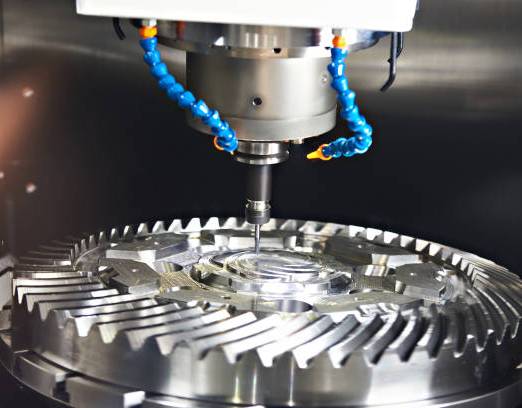
When discussing drill press vs milling machine, we must highlight each tool's role and expected performance in practice. Even though they both complete machining operations, they serve different purposes owing to the possible work that can be done on them.
Typically designed for vertical drilling, a drill press is more straightforward and concept-focused. At the same time, a milling machine provides more functional performance since it can cut, shape, and drill in several directions. Each tool has its distinct feature suitable for addressing a particular problem; hence, it is necessary to appreciate such differences to enhance proper decision-making.
A drill press can be defined as a machine that is most commonly employed for boring a hole in a material vertically. It can also do many other wood, metal, and plastics operations. It has a cylindrical axis parallel to the drilled wall, which enables the user to drill through holes.
The primary use of a drill press is that it ensures the drilling of holes at right angles and definite depths; it is, therefore, best suited for operations where the parts have to be drilled in equal numbers of times. It is as simple as the machine being repaired and the operator rotating the spindle to drill. As a result, he gets standardized, with little physical force to apply to get good, neat, and well-spaced holes.
In contrast to a drill press, the features of a milling machine provide it with greater flexibility. A drill press serves vertical holes for drilling purposes, while a milling machine can cut, shape, and drill with the added feature of multiple axes.
Generally, the primary purpose of the milling machine is to perform several axes of rotation of a particular cutting tool, like a drilling machine or an end mill, over a certain workpiece. In any case, one must succeed on the different kinds of axes. It makes the machine more advanced than a drill press.
One of the major advantages of the milling machine is its accuracy. Whether fine details or large-scale projects, shifting the piece being worked on and the holder in various directions enhances the performance.
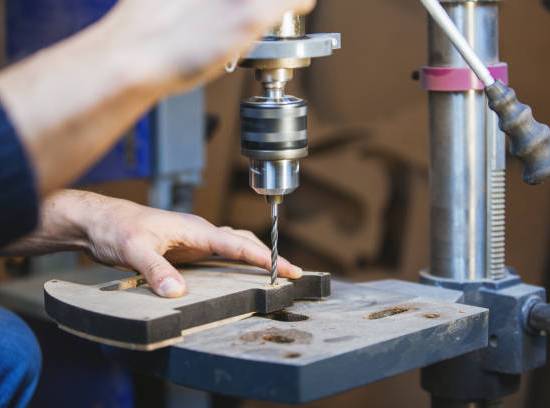
It is crucial to understand their features, such as their usability, accuracy, and adaptability, while measuring a drill press against a milling machine. The following are the main differences between the two machines.
The primary purpose of a drill press is to make holes, whereas a milling machine can perform various functions like cutting, shaping, and making holes on different surfaces. The milling machine has a higher advantage, whereas the simple drilling process is insufficient.
A milling machine takes the crown when it comes to accuracy. Even though a drill press can deliver a fair degree of accuracy during vertical drilling, it must have the finesse to work on multiple axes. On the other hand, a milling machine has several directions that go all the way up to vertical, allowing what seems like impossible but intricate, high-precision cuts.
A drill press is designed to work on a single vertical axis and, as a result, can only make horizontal and vertical movements with the drilling tool. However, a milling machine moves in three axes (X, Y, and Z), enabling complicated parts like contouring, slotting, and face milling.
Several tooling options are available in milling machines, including cutting tools such as end mills, face mills, and slot drills. The same could not be said for the drill press, which has limited tooling options.
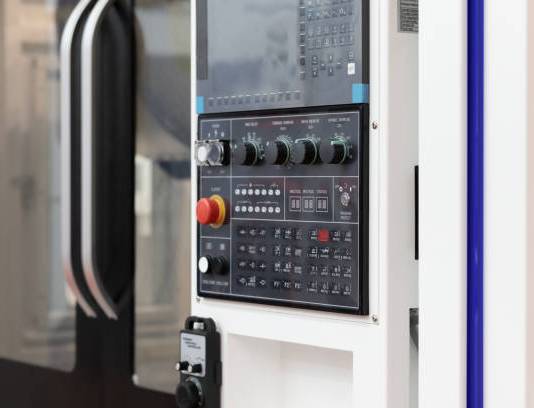
In some scenarios, selecting a drill press instead of a milling machine is preferable as the tasks' complexity is basic. A complication arises when you have much easier work with a milling machine due to the versatility of a drill press.
A drilling machine is the most consistent performer when the action involves simple and repetitive drilling. For example, a drilling press is very fast and effective in drilling straight holes in the body of wood, plastic, and metal. It excels in applications that don’t require complex machining operations, such as drilling clean, vertical holes with consistent depth and precision.
Industries like woodworking, DIY projects, or small-scale metalworking often prefer a drill press for its simplicity. For general workshops where drilling is the primary operation, the drill press offers a perfect balance of ease of use and functionality. It’s also common in repair shops and hobbyist settings where intricate cuts and multi-axis movements are unnecessary.
A drill press is much less expensive when viewed from a financial angle than a milling machine. This is a low-capital investment, suitable for firms that do not have high machining needs or are mainly working with drilling. When it is not needed to do precision cutting and multi-axis, the drill press is worth its price.
To put it differently, a milling machine is the best option for the precision, flexibility, and complexity needed in the machining operations of a given industry or application.
A drilling machine, for instance, is useful only in carrying out vertical drilling and is therefore considered a single-axis tool. Instead of straightforward rotating the tool, three or more dimensions are simultaneously introduced, helping in cutting, shaping, and machining a part in various orientations.
This quality is particularly advantageous for procedures that involve complex shapes or multiple processes, deep-hole-boring or penetrating, and other boring or cementing capabilities.
A milling machine is most effective on works requiring more complicated machined work, such as causing more than more precision to be applied to cutting, shaping, and contouring. Milling machines excel in applications demanding high precision and intricate multi-axial movements.
Moreover, fabricating small, complex components or handling large parts, these machines showcase remarkable versatility. Their adaptability enables efficient processing of diverse workpieces, making them indispensable in various industries, from aerospace to automotive and beyond.
Milling machine technology has been found applicable in many industries, including aerospace, automotive, metalworking, and engineering. These industries mostly call for the production of delicate parts, which can, at best, be achieved with the efficiency only a milling machine can provide.
While a milling machine involves a larger initial investment, its multi-functionality and ability to handle more complex tasks make it a cost-effective, long-term investment. It can reduce the need for multiple machines, offering significant productivity gains and flexibility for industries that rely on precision and high-quality machining.
One of the aspects that should be looked into in further detail when discussing the advantages and disadvantages of a drill press and a milling machine is the aspect of CNC compatibility. At heart, milling machines are crafted for CNC (Computer Numerical Control) functionality and offer all irresistible features of accuracy, consistency, and versatility.
This makes them advantageous in performing automatic machining procedures involving several operational axes, complexities, and well-defined cutting trajectories. Operating a milling machine along particular axes increases control, making it ideal for manufacturing intricate part structures in the aerospace, automotive, and metalworking industries.
Unlike milling machines, CNC integration is relatively rare in drilling machines. While some drill presses may offer automated features, their single-axis vertical design limits their capabilities. As a result, incorporating CNC technology into a drilling machine is often unnecessary, as it would only enable simple repetitive drilling functions. In contrast, CNC milling machines offer various advanced functions, making them a more versatile and valuable investment.
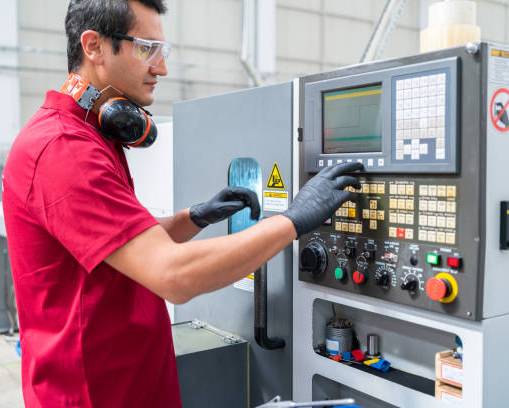
Choosing between a drill press and a milling machine calls for understanding the specific business one focuses on. For such industries that value versatility, precision, and flexibility, there is no doubt that purchasing a milling machine is a logical thing to do. In contrast, if most of your activities are just ordinary and monotonous drilling processes, a drill press might do the job just fine.
More often than not, companies that engage with metals, demand precision parts, or depend on CNC processing will realize that a milling machine offers more value for money. Nevertheless, if you are concerned primarily with budget and carefully designed simplicity, a drill press can serve as a cheaper and simpler alternative.
CNC Yangsen Equipment is a reliable supplier of various CNC milling machines that are appropriate for the requirements of many sectors of the economy. Whether it is a need for a machine for accurate machining, rugged operations, or drilling, Yangsen has it all.
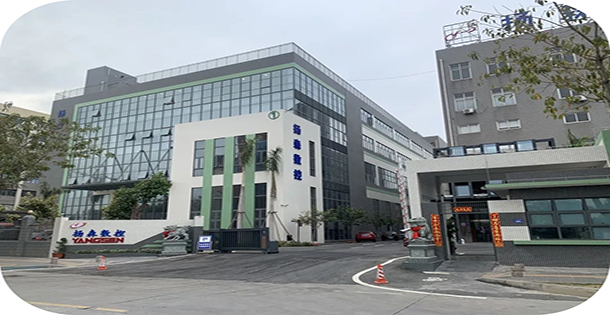
Yangsen’s CNC milling machine line contains all the necessary enhancements, focusing on the machine's quality, precision, and flexibility. We have a variety of performed models designed for material processing of various forms and sizes, from individual workshops to full-scale industrial systems.
At Yangsen, all our businesses are different, so we provide these customized CNC milling machine solutions. This way, we have specialized tooling, specific CNC software, or a machine working with a certain material.
Yangsen actively supports its customers by providing further technological assistance. Our specialists will always come to your aid and help you use your CNC machines effectively by maintaining them, troubleshooting them, and giving you ideas. We also provide distributorship to those interested in teaming up with the CNC equipment suppliers.
Choosing between a drill press and a milling machine will influence the business's productivity, precision, and profit margins. Although other simpler jobs can be executed using a drill press, as this equipment is often referred to, only the milling machine can allow for such flexibility and accuracy, hence its applicability in most industries.
At CNC Yangsen, we assist you in locating the most appropriate CNC milling machine for your requirements. With our extensive range of machines and commitment to quality, you can trust Yangsen to deliver the performance and precision you need to succeed.